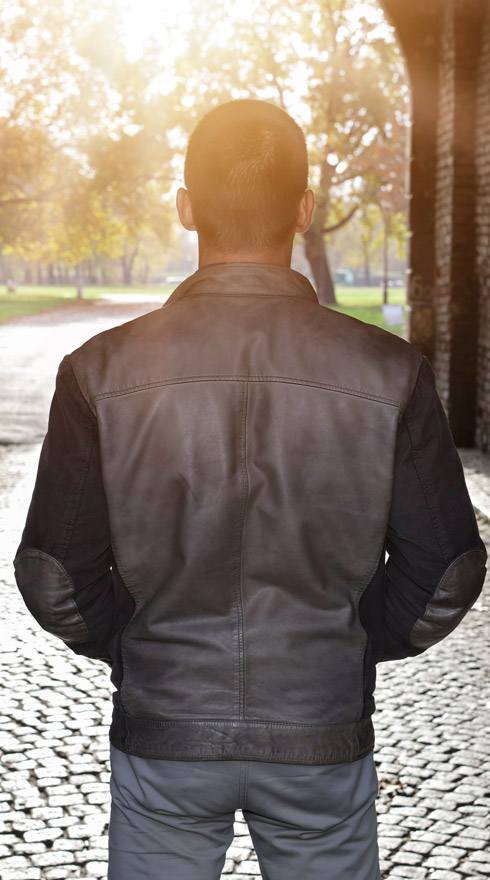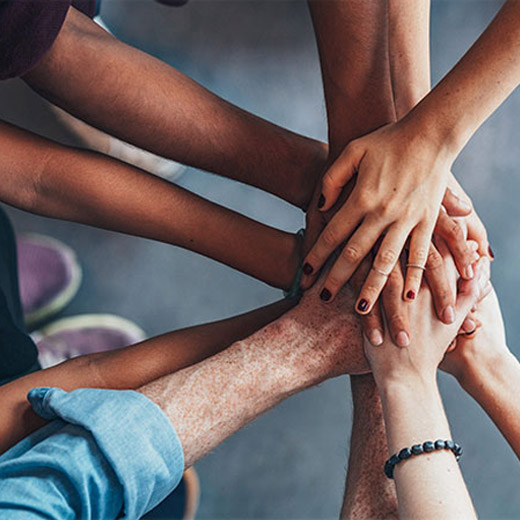Drug addiction can happen to anyone regardless of age, gender, race, class, intellect, or even employment status. The reasons behind drug addiction vary and everyone’s own experience is personal and unique to them.
But, what isn’t unique is that drug abuse has harmful consequences. Someone may think they have a handle on their drug use, that they aren’t harming anyone and can stop at any time. When drug abuse turns into addiction, which it almost always does, this is simply not true. By definition, addiction is when you have lost control over your substance abuse and will pursue it at any cost.

Addiction doesn’t just affect a person’s health and well-being, it can also impact their employment, reputation, and relationships. People gripped by addictions will prioritize drug use over everything else. They often lie to loved ones and sometimes even steal from them in order to get their fix.
It can be overwhelming when a loved one is going through drug abuse and addiction. You might not have any prior experience of drug abuse and not know what to do or where to turn. Arming yourself with information will allow you to stay in control. There are many resources for people with addictions and help is available for those who are ready to enter recovery and start a new chapter.
Opiate Addiction Symptoms
Drug abuse is common worldwide and the US is no exception. Sadly, the statistics on drug abuse in this country are staggering.
In the US, 50% of people aged 12 and older have used illicit drugs at least once and 21.4% have used illicit drugs in the last year. Taking illicit drugs is always considered drug abuse. Another form of drug abuse is misusing prescription medication.

Many drugs have a high potential for addiction and this is why drug abuse is a slippery slope. In 2019, it was reported that 21 million Americans have a drug addiction.
Drug addiction can ruin lives. Accidental drug overdose is a leading cause of death in those under 45, with over 70,000 drug overdose deaths occurring in the US annually.
Drug-Related Crimes in the US
It is illegal to take, carry, make, sell, deal, or share illicit drugs and some prescription drugs. Breaking the law like this has consequences that can dramatically affect a person’s life.
Annually, 1.16 million Americans are arrested for the sale, manufacture, or possession of illegal substances and 244,000 of those are sent to prison.
The most common drug arrests are related to marijuana. Over 300,000 people are arrested annually in the US for possessions of marijuana, and over 30,000 are arrested annually for its sale and manufacture.
Drug-Related Mental Health Conditions: Latest Facts
It is well documented that substance use disorders commonly co-occur with mental health disorders. In fact, one in four adults living with serious mental health problems also has a substance use problem.
There are various reasons for this and in fact, substance use disorder and certain mental health conditions share the same risk factors including changes in brain composition, genetic vulnerabilities, and early exposure to stress or trauma.
Some people unable to cope with their mental health conditions self-medicate with alcohol and drugs which can lead to addiction. This only makes things worse as addiction can exacerbate the symptoms of some mental health conditions. It is a vicious cycle that is difficult to escape without treating both the substance use disorder and the mental health condition. If you just treat the substance use disorder, it is likely that it will return due to unresolved mental health problems.
Drug-Related Hospital Admissions in the USA
Drug abuse can have devastating consequences to your physical health. As a result of this, admissions due to drug related problems are on the rise.
In the US, estimates suggest that drug-related problems (DRPs) accounted for 17 million emergency department visits and 8.7 million hospital admissions annually. This makes up 5-15% of all hospitalizations, of which 25-75% were avoidable. These statistics are devastating and highlight the true dangers of drug abuse.
The best way to avoid health complications through drug abuse is to get addiction treatment. Early intervention offers the best prognosis for recovery and it isn’t too late to rewrite your future.
Families Affected by Drugs
Drug abuse doesn’t just affect the individual but those around them. Studies have found that the effects of substance abuse are felt by around half of all American families.
In the US, about 1 in 8 children ages 17 or younger are living in households with at least one parent who has a substance use disorder. While drug abuse in parents does not necessarily mean a child experiences neglect or abuse, it does increase the risk of child welfare involvement. The increase of opioid misuse in particular has been described by child welfare professionals as having the worst effects on child welfare systems that they have seen.
This ultimately has a knock on effect because having one or more parent with a substance abuse problem is a risk factor in developing a substance abuse problem yourself. Childhood trauma, which could be gained from having an addicted parent, is also linked to mental health problems.
If someone in your family has drug abuse or addiction problems, help is available. It might be beneficial to talk to other families going through the same thing and you can do this at support groups specifically designed to help families of addicted loved ones.

Young People and Drug Addiction
Substance abuse among young people is a growing problem. One in three young adults reported binge drinking in the past month and two in five reported taking illicit drugs in the past year.
In the US, there are 34.1 million young people aged 18 to 24. In 2018, the National Survey on Drug Use and Health (American addiction centers) found that:
- 1 in 11 young adults is a heavy drinker
- 1 in 10 young adults has an addiction to alcohol (alcohol use disorder)
- 1 in 7 young adults has a drug addiction (substance use disorder)
- 1 in 13 young adults has an illicit drug use disorder
- 1 in 17 young adults has a marijuana use disorder
- 1 in 100 young adults has an opioid use disorder
It is important to make young adults aware of the dangers of substance abuse. Help is available for young people struggling with substance use problems and addiction.
Elderly Members of the Society and Drug Addiction
Drug abuse does not just affect young adults.
A 2018 report found that nearly 1 million adults aged 65 or older live with a substance use disorder. In addition, the admissions of older adults in treatment facilities increased from 3.4% to 7.0% between 2000 and 2012.
Alcohol is the most used drug among older adults, with about 65% of people 65 and older reporting high-risk drinking such as binge drinking which can lead to addiction.
Some reasons for drug addiction in elderly members of society include a way to cope with mental health conditions such as depression and mismanagement of prescription drugs. Help and support for substance abuse is available no matter your age.
Prison Population and Drugs
With an estimated 65% of the active US prison population having an active SUD, there is an undeniable connection between drug abuse and prison sentences.
In addition, another 20% did not meet the criteria for SUD but were under the influence of alcohol or drugs at the time of their crime.
Treatment for substance use disorder is critical to preventing future crimes after inmates return to the community. However, reports have found that only a small percentage of those who need treatment while behind bars actually receive it, and often the treatment provided is inadequate.
In the case of drug abuse, prevention is better than the cure. Looking at the facts and statistics, it is clear to see that drug abuse is destructive and damaging to not just your physical and mental health but your entire life. No one is immune from the risks of addiction and awareness must be made to ensure that people avoid drug abuse at any age.
Where to Seek Help?

When someone has a drug abuse problem or addiction, the best place for them is a rehab center. There are thousands of rehab centers, meaning you will be sure to find the most suitable one for your needs. Many rehabs offer personalized treatment plans and aftercare.
Addictions require a detox to rid the body of substances. Rehab centers provide medical detoxes under professional supervision for peace of mind and the best chance of recovery. Many rehab centers offer other addiction treatments such as therapy to work through what led you to drug abuse in the first place. They also provide family support for loved ones affected by addiction and will help to restore relationships broken by drug abuse.
Where to Call for Help?
No matter where in the US you are, help is available. There are helplines nationwide including state-specific hotlines such as in New York, New Jersey, California, Texas, and more. These helplines can assist you in finding local rehab centers and other information you might need for yourself or a loved one.
Our rehab clinic has immediate admissions so don’t delay. Contact our specialist team today and see how we can help. You can find out how to reach us through our contact page.
Do You Need Help?
Together, we can build up your confidence and you can regain control over your life!
Contact us now to ask about our addiction and abuse treatment programs now!





